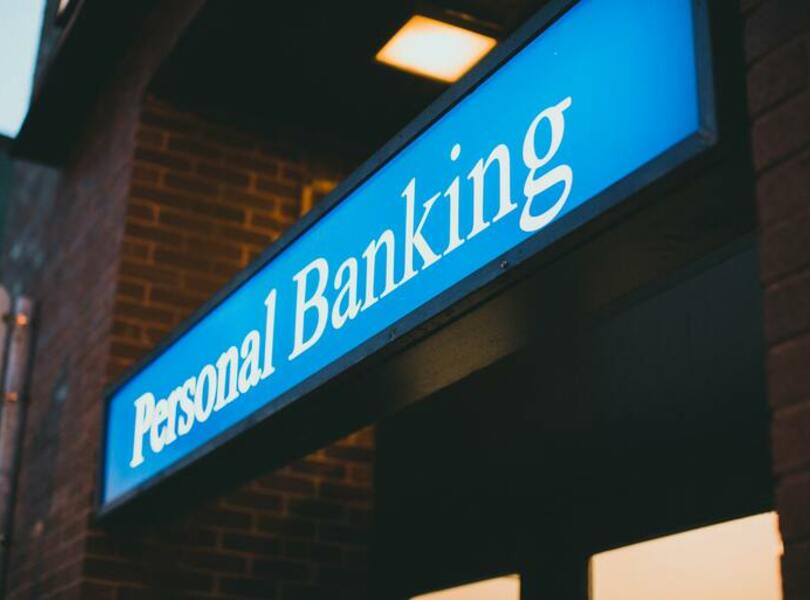The beautiful country of Greece, with its enviable climate, wonderful scenery and thousands of years of history, is a welcoming place to be. It has a thriving tourist industry and offers a high standard of living, along with excellent educational establishments, healthcare, safety and security together with the reassurance of a strong legal system and beneficial conditions for business and taxation.
For an individual to take out second citizenship, become a resident, live and work in Greece or even travel to the country frequently, or for a company to open premises or relocate to Greece, they will need to know how to get the best out of the Greek banking system. Having a Greek bank account will help the holder to manage their salary from a Greek employer, pay taxes in the country, purchase a property and demonstrate commitment to Greece when they apply for a residence permit.
Our informative guide takes you through all aspects of the system and aims to help you make the best of your assets and income in the country.
General Tips On Opening Bank Accounts
The applicant will usually need to visit the bank in person, although sometimes a legal advocate may be allowed to do this instead and some banks offer the facility for applicants to go through the majority of the application process via the telephone or remotely online. For personal visits to open an account, the applicant may require a translator to accompany them. However many banking services, particularly online and at ATMs, are available in English and some banks do have English-speaking staff.
Most banks in Greece have limited opening hours – usually 8am to 2pm – and are open on weekdays only as there is no weekend opening. This can lead to queues, particularly at the end of the month, when pensioners draw their pensions and pay bills. The advent of internet banking has made banking much more accessible and extended the hours in which transactions can easily be made, eliminating or reducing the need to attend branches in person.
When opening a personal bank account in Greece, the applicant is required to sign an undertaking that their account will not be used for any business purposes.
What To Look For When Comparing Banks
There are a number of things to look out for when researching where to bank in Greece.
It is advisable to consult each bank’s interest rates, any set up charge, any regular administration charges and their exchange rates for each type of account required, depending on the currency used. Fees for withdrawals at ATMs within and outside the country will also vary and there may in addition be various other charges such as fees for replacing lost or stolen cards. Each bank’s services and charges should be taken into careful consideration when deciding which bank to use.
Is There A Minimum Age For Opening An Account?
Applicants have to be at least 18 to open a bank account in Greece. However, some banks offer special accounts for under-18s, which have to have the consent of the young person’s parent or guardian.
What Documents Are Required, To Open a Bank Account?
It should be noted that some documents required by banks for opening an account may need to be notarised and/or translated into Greek from English. Some banks will accept documents written in English, which might well speed up the process and be less expensive, while others may not.
Whether a resident or non-resident, the applicant will need to provide:
- Passport;
- An AFM (Arithmo Forologico Mitro) which is a 9-digit tax number obtainable from Greek neighbourhood tax offices. In order to obtain the AFM the applicant must provide their registration card or residence permit, plus proof of their address. Information on how to find a district tax office is available here: http://www.ermis.gov.gr/portal/page/portal/ermis/publicBodies?p_topic=21718
- Most banks may, in addition, require the following:
- Proof of address and contact number;
- Proof of profession and current or last business address;
- Recent utility and/or mobile phone bills;
- Tax registration number in the country of origin and the most recent tax return;
- The latest monthly salary slip;
- Bank statement;
- Birth certificate;
- Reference from the previous bank;
- Signature sample (which means a personal visit to the bank to provide this);
- The applicant to sign a declaration stating a personal account is not for business use.
In addition to the paperwork required for the opening of the account, the applicant will be asked to make a minimum donation into their account. This is usually around €250.
Can Accounts Be Applied For Online?
Traditional banks with in-person branches will usually require the applicant to make a personal visit at some stage during the process, to provide their signature and any documents required. However, in most cases the application can be started over the telephone or online, only requiring a personal visit at a late stage to finalise it.
Which Are The Best Banks?
The most popular banks in Greece are the National Bank of Greece (NBG), The Alpha Bank, Eurobank and Piraeus Bank. Many other banks are available and all have the facility for online banking in English.
- National Bank of Greece (NBG) – An international bank and financial institution with an extensive network of ATMs and branches in Australia, Egypt and the UK, subsidiaries in Albania, Bulgaria, Cyprus, North Macedonia, Malta, Romania, Serbia and South Africa, and over 500 branches in Greece itself. A good selection of account types for personal and business purposes. A basic account offers cheques and a debit card facility. An account can be applied for by telephone without having to visit in person, though that may be required subsequently.
- Alpha Bank – Established in the 19th Century and now the second biggest bank in Greece in terms of its assets. It has an international presence, with subsidiaries and branches in London, Albania, Cyprus and Romania and has a wide network of ATMS and digital services. Alpha Bank offers the full range of banking services including:
- Retail banking aimed at students, adults and retirees;
- Debit and credit card facility;
- An Alpha wallet for digital payments;
- Prepaid cards;
- Reward systems;
- Alpha Bank has a separate section of products for businesses and a premium option for entrepreneurs with an established record of business. The bank offers financial services such as:
- Loans;
- Investments;
- Savings;
- Insurance.
- Eurobank, full name Eurobank Ergasias – Part of the Eurobank Group, which has interests in Greece, Cyprus, Luxemburg, Serbia, Bulgaria and the UK. The bank offers the facility to open an account remotely, without the requirement for the applicant to visit in person. Eurobank has a convenient mobile app and an E-wallet for digital transactions. It has a good network of branches and ATMs in Greece and its online account offers the full range of services;
- Piraeus Bank – A large multinational bank with headquarters in Greece. It aims its products at small to medium sized businesses, offering targeted services in such areas as agricultural banking, consumer and mortgage credit, green banking, capital markets, investment banking, leasing and electronic banking. The bank has an extensive network of ATMs and has English-speaking staff. It has a useful 24-hour phone service line to supplement its mobile and online banking services. There is no minimum deposit required for its basic current account and the bank offers low interest rates, low overdraft rates, optional chequebooks and a debit card as standard.
- Other, more minor national banks: Attica Bank, Pancreta Bank, Optima Bank, Aegean Baltic Bank, Viva Wallet and a variety of co-operative banks of Chania, Epirus, Thessaly, Karditsa, Drama and Central Macedonia;
- Branches of banks incorporated in other EU countries under the “single license” scheme: HSBC Continental Europe, Greece; ProCredit Bank; Bank of America Europe DAC.
Virtual Bank Accounts
In recent years, online “virtual” bank accounts have risen in popularity and challenged the traditional in-person banks.
For individuals and businesses who need to transfer money outside Europe, traditional bank accounts do provide this service, but bank transfers through them are generally subject to quite substantial charges. This is because the banks use what is known as the “mid-market” rate to transfer and convert money between them. The “mid-market rate” is described as the mid-point between the buying and selling prices of the two countries to an exchange rate, in other words what a buyer is willing to pay and what a seller is willing to sell for. Another name often applied to the “mid-market rate” is the “interbank rate.” Transacting money transfers at this rate carries charges for the banks and in order to cover these charges and to make a profit from the transaction, the account holder is charged fees.
Some virtual accounts compete with the traditional banks by offering the opportunity to reduce the fees charged to the account holder. Products offered may include a European IBAN account to make it easier and more convenient to carry out transactions within Europe and especially the SEPA Zone which covers bank transfers in Euro between the EU and partner countries such as Norway, Iceland and Switzerland, which have agreed fixed rates that enable to keep down the costs of payments. Virtual accounts can also offer generally faster transaction times than the traditional banks.
When considering online banking it is advisable to choose a licensed bank rather than an e-money institution.
Licensed Banks And e-Money Institutions
While e-money institutions offer a limited number of financial services such as currency exchange and money transfers, it is recommended to use a licensed bank which is able to do a great deal more while offering enhanced security.
Ex-Pat Accounts
It is also possible as a foreign national or resident of Greece, to open an Ex-pat account with a bank from the original country. Such accounts are also known as offshore accounts, international accounts and non-resident accounts. They are designed for people who live or work abroad or are planning to relocate to another country, people who travel frequently between countries, and those who hold assets in different currencies and want their money held in a secure location on neutral territory such as Jersey in the Channel Islands.
Several of the British banks offer Ex-pat accounts, which are often a convenient way to conduct transactions in two or more countries. Accounts may be set up in a choice of currencies – for example US dollars, British sterling or Euros, offering great flexibility. This ensures that whatever country a person moves to, their bank account remains stable and secure.
Such accounts can offer a range of services including mortgages, investments, insurance and current and savings accounts. Ex-pat accounts can be held in addition to any other accounts held in the country the person is living in.
Using Internet Banking
All banks offer internet banking as part of their service and Greek banks are no exception, offering internet banking in English if required. Account holders can download the bank’s app on their mobile phones or can use the computer if preferred. Most of the mobile apps support fingerprint identification for added security, together with the use of one-time passcodes received via SMS or an app called Viber, commonly used in Greece.
Withdrawing Cash In Greece
All the major banks have a network of ATM machines where the account holder can withdraw their cash. These usually have an English option, making them convenient to use. It should be noted that if the holder is withdrawing cash from a bank that is not their own bank, it will be subject to a charge, usually around €2 to €3.75.
Clearly there are many kinds of bank accounts available and many different banks and financial institutions offering a variety of products and services. Whether an individual regularly holidaying or living in Greece, or a business opening or relocating to the country, careful consideration of services and charges will ensure that you find the best bank to optimise your assets and income.













